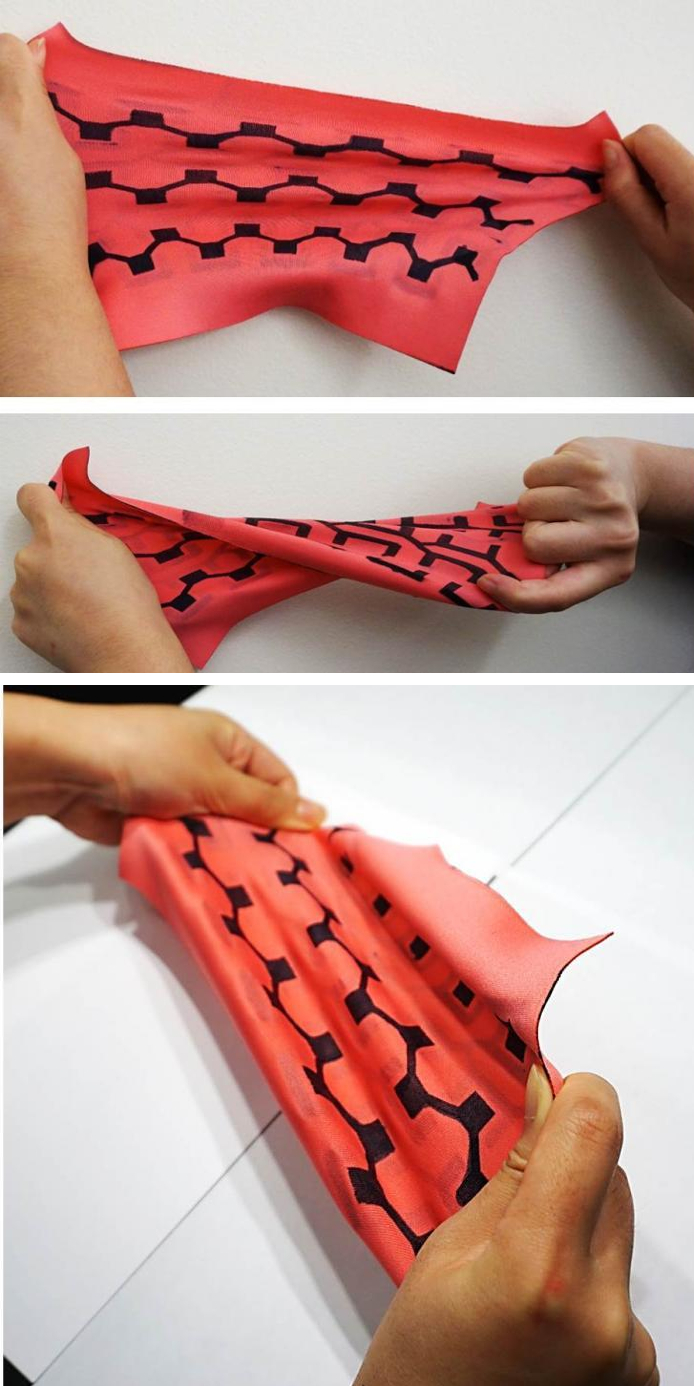Bendy bio-battery for body power
 Engineers in the US have created an entirely textile-based, bacteria-powered bio-battery.
Engineers in the US have created an entirely textile-based, bacteria-powered bio-battery.
Binghamton University Electrical and Computer Science Assistant Professor Seokheun Choi says the stretchable, twistable power device could be the start of a standardised platform for textile-based bio-batteries to be integrated into wearable electronics in the future.
“There is a clear and pressing need for flexible and stretchable electronics that can be easily integrated with a wide range of surroundings to collect real-time information,” Dr Choi says.
“Those electronics must perform reliably even while intimately used on substrates with complex and curvilinear shapes, like moving body parts or organs. We considered a flexible, stretchable, miniaturized bio-battery as a truly useful energy technology because of their sustainable, renewable and eco-friendly capabilities.”
Compared to traditional batteries and other enzymatic fuel cells, microbial fuel cells are a more suitable power source for wearable electronics, experts say.
This is because the whole microbial cell acts as a biocatalyst provide stable enzymatic reactions, and a long lifetime.
Sweat generated by the human body could be used as a potential fuel to support bacterial viability.
“If we consider that humans possess more bacterial cells than human cells in their bodies, the direct use of bacterial cells as a power resource interdependently with the human body is conceivable for wearable electronics,” Dr Choi said.
A new paper, “Flexible and Stretchable Biobatteries: Monolithic Integration of Membrane-Free Microbial Fuel Cells in a Single Textile Layer,” has been published in Advanced Energy Materials.







 Print
Print